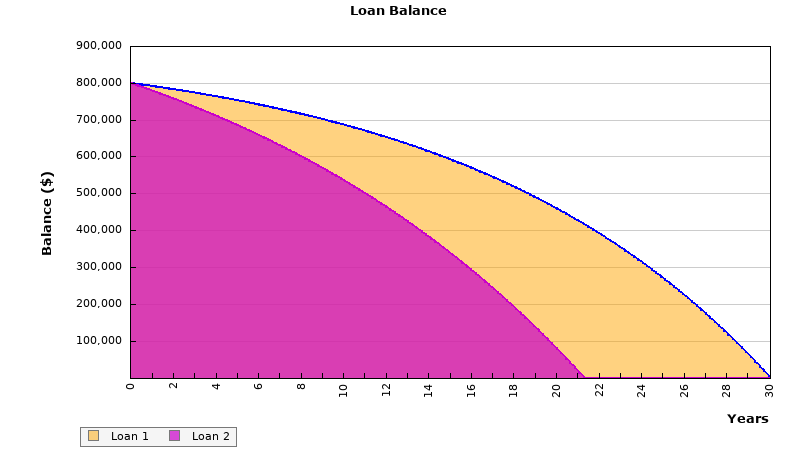Array
(
[beliefmedia] => Array
(
[bmsid] => c132055881498fb655d014a0622d3554
[bmuid] => 96f85568fdab581e5d39f4d51c3698b518010453f9790c07991930997d9ff655
[user] => 96f85568fdab581e5d39f4d51c3698b518010453f9790c07991930997d9ff655
[geo] => Array
(
[bmuid] => 8e5269469fd69d69386fb67cd0372d06fcc632693144d8c0a51f9bc09832004d
[bmuid_id] => 61664
[ip] => 18.118.226.34
[bmsid] => c132055881498fb655d014a0622d3554
[bmsid_id] => 31180
[ip_id] =>
[xena_bmuid_ip_id] => 28883
[ipaddress] => 18.118.226.34
[ipversion] => 4
[continent] => North America
[continent_code] => NA
[countrycode] => US
[countryname] => United States
[country_name] => United States
[country_code] => US
[region] => Ohio
[regionname] => Ohio
[state] => Ohio
[cityname] => Columbus
[city] => Columbus
[latitude] => 39.96120000
[longitude] => -82.99880000
[timezone] =>
[zipcode] =>
[host] => ec2-18-118-226-34.us-east-2.compute.amazonaws.com
[host_domain] => amazonaws.com
[asn] => 16509
[aso] => Amazon.com, Inc.
[full] => Array
(
[city] => Array
(
[names] => Array
(
[en] => Columbus
)
)
[continent] => Array
(
[code] => NA
[geoname_id] => 6255149
[names] => Array
(
[de] => Nordamerika
[en] => North America
[es] => Norteamérica
[fa] => امریکای شمالی
[fr] => Amérique Du Nord
[ja] => 北アメリカ大陸
[ko] => 북아메리카
[pt-BR] => América Do Norte
[ru] => Северная Америка
[zh-CN] => 北美洲
)
)
[country] => Array
(
[geoname_id] => 6252001
[is_in_european_union] =>
[iso_code] => US
[names] => Array
(
[de] => Vereinigte Staaten von Amerika
[en] => United States
[es] => Estados Unidos de América (los)
[fa] => ایالات متحدهٔ امریکا
[fr] => États-Unis
[ja] => アメリカ合衆国
[ko] => 미국
[pt-BR] => Estados Unidos
[ru] => США
[zh-CN] => 美国
)
)
[location] => Array
(
[latitude] => 39.9612
[longitude] => -82.9988
)
[subdivisions] => Array
(
[0] => Array
(
[names] => Array
(
[en] => Ohio
)
)
)
)
[id] => Array
(
[ip_id] => 3168
[suburb_id] => 31
[state_id] => 16
[country_id] => 3
[continent_id] => 3
[lat_lng_id] => 33
)
[ms] =>
[timezone_id] =>
[ms_id] =>
)
[interest] => Array
(
[undefined] => 1.15
)
[last_visit] => 1745122773
[page_id] => 10726
[unique_id] => aAR11fQaqrEMEque-AL9YwAAAIM
[server_ip] => 180.92.197.157
[pkey] => 78fc8002244f7d381d0d0a5e2a954753
[site_id] => 9b85de02271517d6fb0e22b5e4bb9b63
[post_status] => publish
[is_administrator] => 0
[xena] => url=https%3A%2F%2Fbuyinvestlive.com.au%2F77-borrow-smart-series-financing-high-rise-apartments-what-you-need-to-know&sitehash=9b85de02271517d6fb0e22b5e4bb9b63&site_id=9b85de02271517d6fb0e22b5e4bb9b63&bmuid=96f85568fdab581e5d39f4d51c3698b518010453f9790c07991930997d9ff655&bmuid_id=61665&page_id=10726&post_type=post&post_type_id=2&is_lp=0&dts=1745122773&dt=2025-04-20+04%3A19%3A33&to_id=10726&referrer=0&domain_id=2&is_shortt=0&is_internal=0&from_id=0&is_from_front=0&is_from_blog=0&referrer_id=19&lender_id=1&pairing_id=547&bmsid=c132055881498fb655d014a0622d3554&bmsid_id=31180&is_mobile=0&is_conversion=0&is_home=0&is_blog=0&is_search=0&is_archive=0&is_post_type_archive=0&ip=18.118.226.34&is_bot=1&user_agent=Mozilla%2F5.0+AppleWebKit%2F537.36+%28KHTML%2C+like+Gecko%3B+compatible%3B+ClaudeBot%2F1.0%3B+%2Bclaudebot%40anthropic.com%29&user_agent_id=7&os_id=2&is_logged_in=0&unique_id=aAR11fQaqrEMEque-AL9YwAAAIM&hash=e47102ebeb63d35bcf2ce8e2354f2ace&bmuid_ip_id=28884&interest=undefined&interest_id=1&website_xena_id=0&title=%2377+Borrow+Smart+Series+%26%238211%3B+Financing+High-Rise+Apartments%3A+What+You+Need+to+Know&published_date=11+November+2024&modified_date=2024-11-11T10%3A49%3A16%2B10%3A00&post_status=publish&post_thumbnail_id=10248&post_thumbnail_url=https%3A%2F%2Fbuyinvestlive.com.au%2Fwp-content%2Fuploads%2F2024%2F08%2F77-marcel-eberle-_Z5ayVBcYjg-unsplash-scaled-1.jpg&post_name=77-borrow-smart-series-financing-high-rise-apartments-what-you-need-to-know
[xena_link] => Array
(
[url] => https://buyinvestlive.com.au/77-borrow-smart-series-financing-high-rise-apartments-what-you-need-to-know
[is_internal] => 0
[bmuid_id] => 61665
[bmuid] => 96f85568fdab581e5d39f4d51c3698b518010453f9790c07991930997d9ff655
[sitehash] => 9b85de02271517d6fb0e22b5e4bb9b63
[bmsid] => 31180
[page_id] => 10726
[from_id] => 0
[to_id] => 10726
[is_from_front] => 0
[is_from_blog] => 0
[is_mobile] => 0
[is_lp] => 0
[is_home] => 0
[is_blog] => 0
[is_archive] => 0
[is_post_type_archive] => 0
[post_type] => post
[unique_id] => aAR11fQaqrEMEque-AL9YwAAAIM
[hash] => e47102ebeb63d35bcf2ce8e2354f2ace
[dts] => 1745122773
[dt] => 2025-04-20 04:19:33
[ip] => 18.118.226.34
[is_logged_in] => 0
[referrer] =>
[user_agent] => Mozilla/5.0 AppleWebKit/537.36 (KHTML, like Gecko; compatible; ClaudeBot/1.0; +claudebot@anthropic.com)
)
)
)
General Repayment Calculator
The General Repayment Calculator will provide you with a very general understanding of how much you might be able to borrow. Consider visiting our Calculator Archive.
Renovating Frequently Asked Questions
Listed below are common renovating and General Borrowing Frequently Asked Questions. Selecting the link from within each FAQ will deliver you to a page with more information.

















